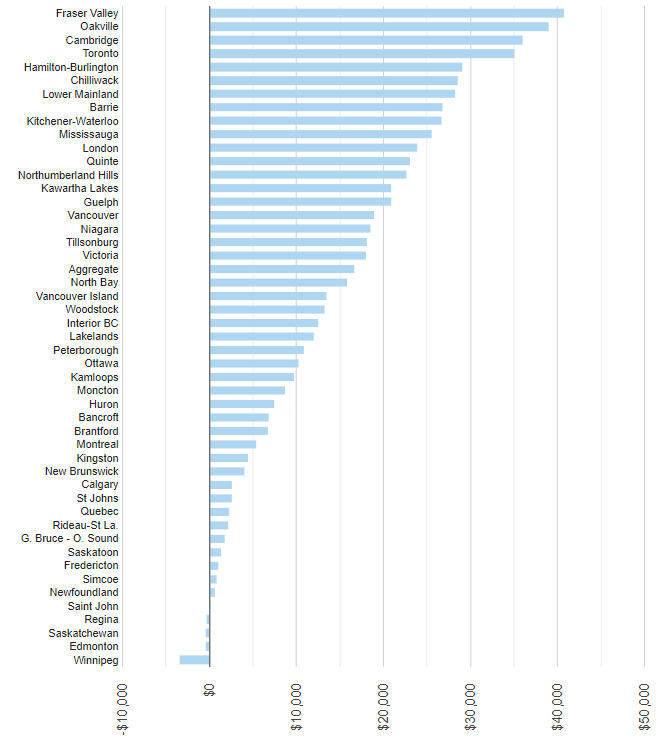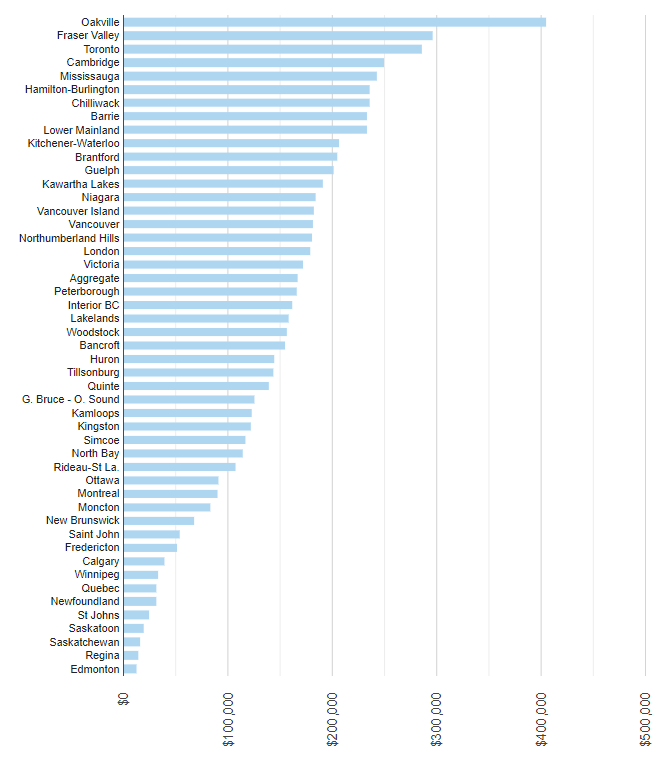A Typical Home Across Canada Increased $16,700 Last Month
Canadian home prices are rising at one of the fastest rates ever. The composite benchmark (a.k.a. a typical home) reached $798,200 in December, up 2.1% ($16,700) compared to a month before. The benchmark is now a whopping 26.6% ($167,500) higher than last year. Both are large gains, but this is the index — many markets outperform even that huge growth.
Canadian Commuter Cities Have Seen The Largest Monthly Gains
Commuter suburbs saw the largest monthly home price increase last month. Fraser Valley’s composite benchmark reached $1,184,400 in December, up 3.6% ($40,800) from the previous month. It was the largest monthly jump in any real estate market, rising almost half the area’s median household income. The board neighbors Greater Vancouver, and prices are now “flattening.” That last part means the gap between prices in the suburbs and city is shrinking.
Canadian Real Estate Prices Change 1 Month
The 1-month change in price for a composite benchmark home across Canada in December.

Source: CREA; Better Dwelling.
The second and third largest monthly gains were both seen in Southern Ontario. Oakville’s benchmark home price hit $1,516,800 in December, up 2.6% ($39,000) from a month before. Cambridge followed with the typical home reaching $884,600, up 4.2% ($36,000) over the same period. Both regions are within a one-hour commute of Toronto.
Canadian Real Estate Markets Have Seen Prices Increase Up To $400,000 In One Year
Commuter suburbs also took the top two spots for annual growth, with the city people commute to in third. The Oakville region has seen a typical home hit $1,516,800 in December, up 36.4% ($404,900) from a year before. Fraser Valley made this list as well, with prices rising 33.4% ($296,300) in one year. Greater Toronto’s typical home has also jumped to a benchmark price of $1,208,000, up 31.1% ($286,600) from a year before. Two pricey suburbs and one of the most expensive markets in the world.
Canadian Real Estate Prices Change 12 Month
The 12-month change in price for a composite benchmark home across Canada in December.

Source: CREA; Better Dwelling.
Canadian real estate prices have seen strong growth, driven by low inventory and cheap debt. However, it’s a bit of a chicken and the egg situation, where it’s unclear if inventory fell first or followed. A ton of new homes have been recently delivered to the market, with a significant share to investors.
Investors looking to liquidate would have to be very generous to do so with such high price growth. As BMO recently said, this only ends when the Bank of Canada wants it to end. Until then, expect soaring growth to persist, as well as tight inventory.
Source: betterdwelling.com


Leave A Comment